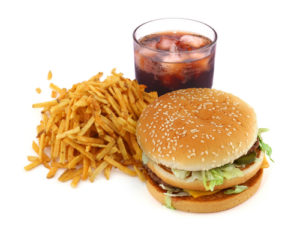 After reports that life expectancy for Americans was down in 2021, the CDC (Centers for Disease Control and Prevention) just released a report that in 2022 the life expectancy has once again increased.
After reports that life expectancy for Americans was down in 2021, the CDC (Centers for Disease Control and Prevention) just released a report that in 2022 the life expectancy has once again increased.
The key finding in the report was that life expectancy for the U.S. population in 2022 was 77.5 years. This is an increase of 1.1 years from 2021. It increased for both males and females in 2022, but there is still a life expectancy gap between them. For males, life expectancy increased 1.3 years from 2021 to 74.8 in 2022. For females, life expectancy increased 0.9 year to 80.2 in 2022.
Heart disease and cancer remain the top 2 causes in 2022 (same as in 2021), while deaths from COVID-19 dropped from #3 in 2021 to #4. "Unintentional injuries" (e.g., accidents, drug overdose, homicide) is now #3 (it was #4 in 2021).
Excerpts from the CDC NCHS Data Brief No. 492, March 2024: Mortality in the United States, 2022 (pdf version) and the CDC page: Mortality in the United States, 2022
- Life expectancy for the U.S. population in 2022 was 77.5 years, an increase of 1.1 years from 2021.
...continue reading "Life Expectancy For US Population Increased in 2022"

 There may be new treatments on the horizon for the most aggressive and deadly brain cancer known as glioblastoma. The median survival is less than one year, so this is very exciting news.
There may be new treatments on the horizon for the most aggressive and deadly brain cancer known as glioblastoma. The median survival is less than one year, so this is very exciting news. Lead is harmful, especially for children. Lowered IQ, learning disabilities, behavioral problems - all from lead exposure. There are no safe lead levels in individuals, so you want to avoid lead and lead-containing products whenever possible. So it shouldn't be a surprise that
Lead is harmful, especially for children. Lowered IQ, learning disabilities, behavioral problems - all from lead exposure. There are no safe lead levels in individuals, so you want to avoid lead and lead-containing products whenever possible. So it shouldn't be a surprise that  The studies finding health harms from ultra-processed foods keep coming. Ultra-processed foods are food products manufactured with all sorts of ingredients (additives) not normally found in our kitchens.
The studies finding health harms from ultra-processed foods keep coming. Ultra-processed foods are food products manufactured with all sorts of ingredients (additives) not normally found in our kitchens.  Most Americans eat highly processed or ultra-processed foods every single day, with most of their daily calories from them! There are all sorts of health risks from these foods, with a recent study finding an overall increased risk of cancer, as well as prostate and breast cancer.
Most Americans eat highly processed or ultra-processed foods every single day, with most of their daily calories from them! There are all sorts of health risks from these foods, with a recent study finding an overall increased risk of cancer, as well as prostate and breast cancer. There is a huge problem in the organic foods industry, and it's a problem that our government refuses to address. The issue is that many of the imported foods into the US are actually not organic, and are not complying with organic standards. The result is that crops grown in the US, from farms following organic standards, can not compete with the low prices of fraudulent "organic" imports.
There is a huge problem in the organic foods industry, and it's a problem that our government refuses to address. The issue is that many of the imported foods into the US are actually not organic, and are not complying with organic standards. The result is that crops grown in the US, from farms following organic standards, can not compete with the low prices of fraudulent "organic" imports. It's March 1, which means meteorological spring is here. Cold winter is over, yet it didn't feel that cold for most. In fact, the last year has been unprecedented and shocking with all the warm records that were set.
It's March 1, which means meteorological spring is here. Cold winter is over, yet it didn't feel that cold for most. In fact, the last year has been unprecedented and shocking with all the warm records that were set. Tattoos are incredibly popular these days. But do persons getting a tattoo actually know what's in the tattoo inks? Are they safe?
Tattoos are incredibly popular these days. But do persons getting a tattoo actually know what's in the tattoo inks? Are they safe?